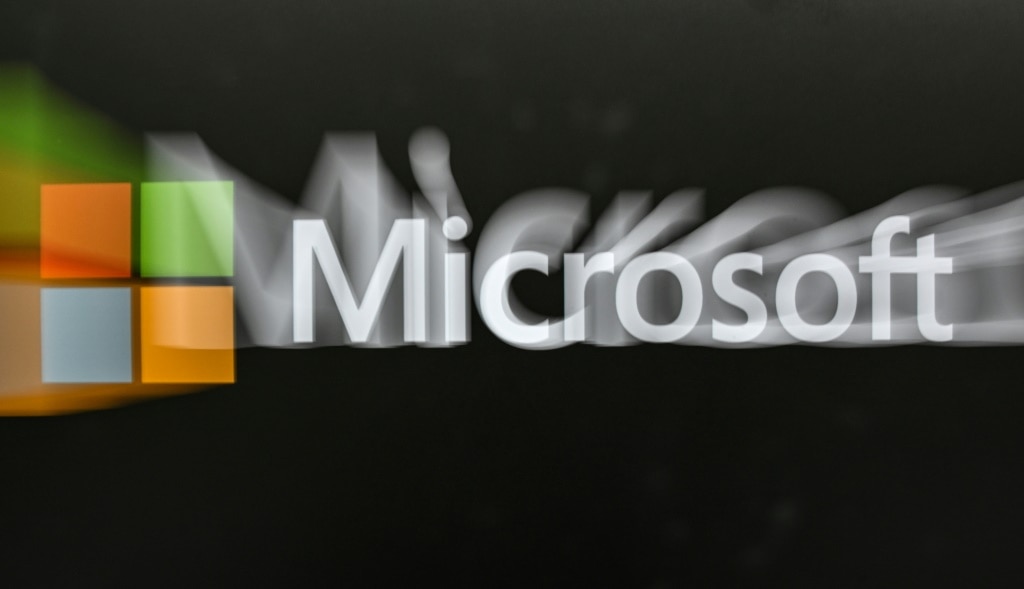OpenAI’s Altman warns on ‘losing sight in AI gold rush’
The force behind the popular AI system ChatGPT has told Microsoft’s annual conference in Seattle current AI models are ‘far from perfect’ and not a shortcut to building great businesses.

Sam Altman, chief executive of ChatGPT maker OpenAI, has warned people not to expect artificial intelligence to do all the work for them, saying the technology is “far from perfect” and does not offer a shortcut to building great businesses.
Mr Altman made a surprise appearance at Microsoft annual Build developer conference in Seattle early Wednesday morning (Australian time), and offered a glimpse to where AI is headed and gave some advice to entrepreneurs.
He was speaking after Microsoft chief executive Satya Nadella announced a suite of updates to the company’s Copilot AI platform, including a Teams Copilot that aims to lift productivity across departments or entire companies rather than individual users.
Microsoft has reportedly invested $US13bn in OpenAI, with Mr Nadella playing a key role in Mr Altman’s restoration as the company’s CEO after he was sacked by the board last year. The partnership also has led to OpenAI’s latest model GPT-4o being directly integrated in Copilot and Microsoft’s Azure AI cloud suite.
Mr Altman said OpenAI’s models were “far from perfect and there’s more work to do” but they “generally robust enough and safe enough for a wide range of uses”. He also said the technology would only get cheaper and faster to run.
But his main advice was for people not to fall into the trap of thinking AI would solve all their business problems.
“It (AI) doesn’t get you around the hard work of building a great product, great company, great service. AI alone is a new enabler but it does not automatically break the rules of business,” Mr Altman said.
“You can use this as a new thing to do. But you still have to figure out how you’re going to build enduring value, whatever you’re doing. And it’s easy to lose sight of that in the excitement of the gold rush.

Mr Altman, who appeared on stage with Microsoft’s chief technology office Kevin Scott, said he had never seen a technology get adopted so quickly as AI. Microsoft Azure customers have surged from 200 in early 2023 to 50,000.
“This is probably the most exciting time to be building a product, start-up of whatever it is, that we have seen at least since the mobile boom and I would say probably since the internet,” Mr Altman said.
“This is not the time to delay what you’re planning to do or wait for the next big thing. This is a special moment and in a few years where a lot of stuff is going to happen, a lot of great things going to get going”
But the rampant adoption of AI has created a largely hidden problem: the heavy energy and water use from the data centres that provide the technology’s backbone.
To this end, Mr Nadella said Microsoft’s 200 data centres across the globe would become fully powered by renewable energy by next year to “drive down the cost of AI”.

He said this will be achieved in several ways by making hardware more efficient and taking in every element of a centre’s operations.
“Our latest data centre designs are purpose built for these AI workloads so that we can effectively and responsibly use every megawatt of power,” Mr Nadella said.
“To drive down the cost of AI and the power draw on we are incorporating advanced data centre cooling techniques to fit the thermal profile of the workloads and match it to the environment of the location where it operates.”
Microsoft is already among the largest purchasers of renewable energy in the world, with operating and contracted renewable energy projects totalling 7.8 gigawatts globally. It says it has signed more than 35 power purchase agreements so far, allowing it to achieve its goal of its data centres being powered fully by renewable energy in the next 12 months.
Earlier this month, it signed a deal with Canadian private equity giant Brookfield Asset Management to invest more than $US10bn to further develop renewable energy capacity.
Under the agreement, Brookfield will deliver more than 10.5 gigawatts of new renewable energy between 2026 and 2030 in the US and Europe. The agreement also includes the potential to deliver additional renewable energy capacity across the Asia-Pacific, India, and Latin America.
The author travelled to Seattle as a guest of Microsoft.




